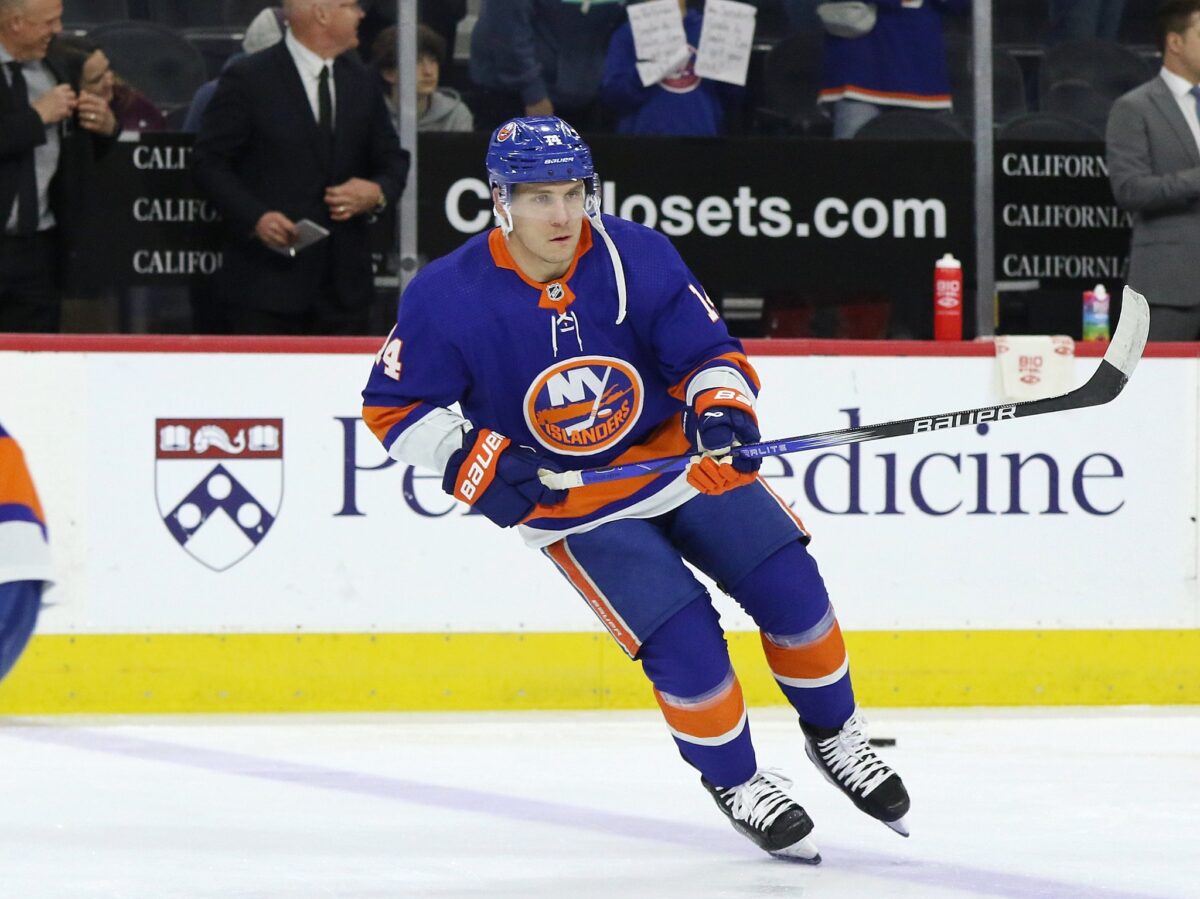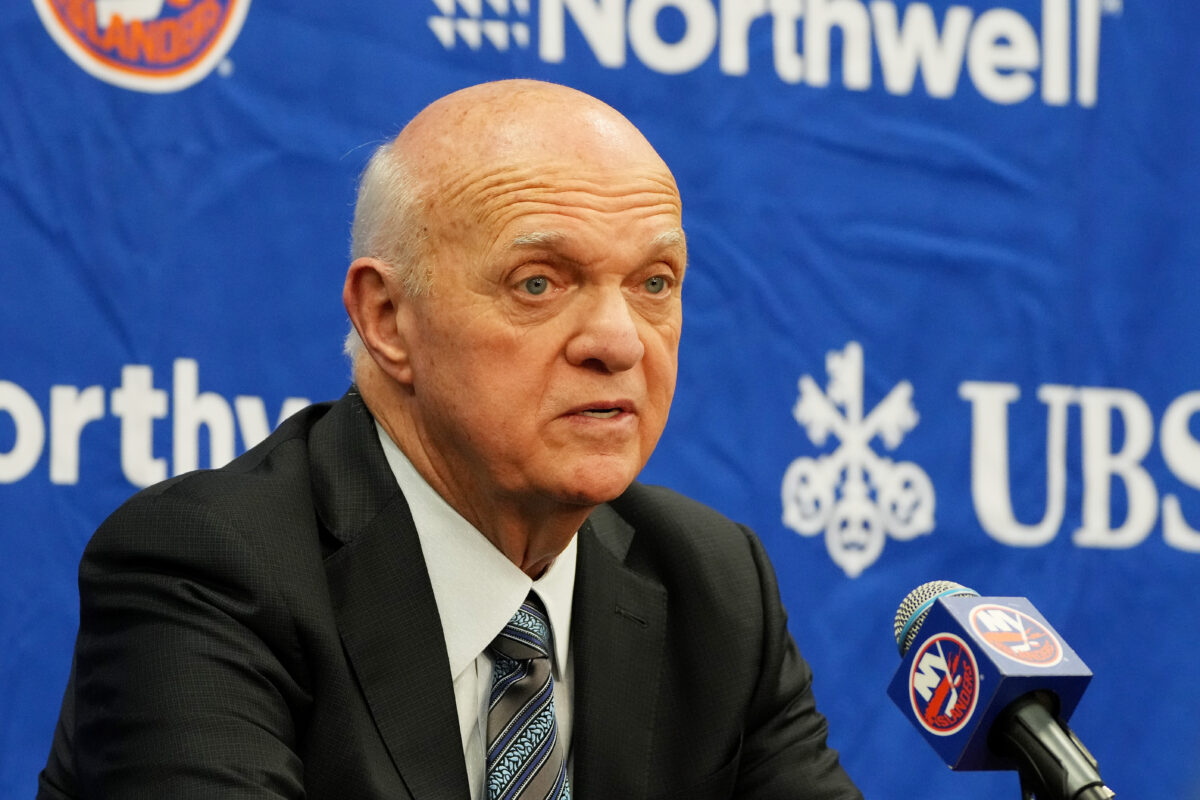The New York Islanders’ 2023-24 season has concluded following their opening-round series loss to the Carolina Hurricanes. This was probably the most nerve-wracking season for Islanders’ fans since the 2015-16 season when they beat the Florida Panthers in the first round to break their 23-year playoff series drought. 2024 brought multiple long-losing streaks, a head core firing, and multiple long-term injuries, and to top it all off an embarrassing Round 1 elimination. There were some positive takeaways from the season, but the issues in this team are deep-rooted and need to be addressed this offseason.
Too Long, Too Much Money
At the 2023 Trade Deadline, the Vancouver Canucks sent Bo Horvat to the Islanders in exchange for Anthony Beauvillier, Aatu Raty, and a protected 2023 first-round draft pick. This trade addressed a major need for the Islanders to address their lack of scoring talent. Just a few days later, Horvat extended for eight seasons at $8.5 million average annual value (AAV) before president of hockey operations Lou Lamoriello spoke to the media, saying “All I can tell you is it’s too long and it’s too much money” with an all-too-serious look on his face. Yes, the man who negotiated and signed the contract believes he is paying the blockbuster addition to his team too much money for too many years. Unfortunately, this is not true for just Horvat, but rather the entirety of the current core.
Related: Every NHL Team’s Most Underrated Prospect
Lamoriello was brought to the Islanders in 2018 and it has reached the point where every single current Islander has had their most recent contract negotiated with Lamoriello and his team. This is officially the team Lamoriello has built, and it is not too pretty. Outside of Noah Dobson, there are no high-value contracts. Some players, like Brock Nelson, Mat Barzal, Semyon Varlamov, and Alexander Romanov are signed to fair-value contracts, but the rest are overpaid or too long. It would be easy to do a deep-dive on each player’s contract, but the truth is none of them are too pretty.
To look at other teams contending for a Stanley Cup, they all have some high-value contracts. The New York Rangers have Alexis Lafreniere, Chris Kreider, and Vincent Trochek, the Boston Bruins have Brandon Carlo and Brad Marchand, the Florida Panthers have Carter Verhaeghe and Sam Bennett, and the list goes on. The Islanders do not have that, and the even bigger issue is the terms and contingencies in the contracts signed.
Mismanagement of Clauses and Term
Beginning in the 2024-25 season, the Islanders will have seven players signed for five or more seasons, and 12 players with a modified or full no-trade clause. Some of these long-term signees consist of Scott Mayfield in his seven-season, $3.5 million AAV contract that contains four seasons of a full no-trade clause, and Pierre Engvall‘s seven-season, $3 million AAV contract that contains a 16-team no-trade clause. There is no doubt these players provide value to the team, but it is hard to tell what is worse about these contracts: the inability to move them due to the no-trade clauses, or the inability to find a team who would ever touch these lengthy contracts.

The idea of signing players to a long-term contract is to secure them to a franchise because of their uncommon talent or to get them a valuable salary that would likely rise if signed in a future off-season. Mayfield and Engvall, along with much of the other recent signings, do not fill either of those ideas. Both of their contracts are fair-value at best with way too long of term.
An even bigger issue with the long-term extensions as a whole is the complacency these players feel once they have secured the contract. This cannot be argued by getting into these players’ exact mindsets, but the scoresheet can tell the argument. Jean Gabriel Pageau scored 24 goals in 60 games with the Ottawa Senators before getting traded and signing with the Islanders on a six-year, $5 million AAV contract. He has not scored 20 goals in a season since. Engvall scored 17 goals in 76 games split between the Islanders and Toronto Maple Leafs last season before scoring just 10 goals in 74 games this season, including an empty netter.
Anders Lee scored 40 goals in the 2017-18 season, followed by 28 goals and 51 points the season prior. Then he signed a seven-year, $7 million AAV contract where he has yet to touch 30 goals. This argument could be made for much of the Islanders’ current core with some exceptions, but it is obvious, at least among many of the roleplayers, that there is a lack of drive for the team. This is not to say they do not care, they obviously do, but the drive, anger, and passion that the 2020 and 2021 teams had are no longer present.
Aging Core
There is another issue with the Islanders’ current core, and it is that most of the players are on the back nines of their careers. For forwards, Lee is turning 34 this summer, Horvat is 29, Pageau is 31, Brock Nelson is 32, Kyle Palmieri is 33, and Casey Cizikas is 33. The defense is not much better, with Mayfield, Ryan Pulock, and Adam Pelech all set to be in their early 30s at the beginning of next season, and they all have spent absorbent amounts of time on the long-term injured reserve in recent seasons. It is okay to be losing with a young core, but to be losing with an aging core that is almost entirely signed long-term is a recipe for mediocrity.
Wavering Management
The overbroad theme of this Islanders team is a lack of direction. The team believed they had a good group last season, but fell short due to Mat Barzal’s season-ending injury. This season, they had an underdog mindset, and in some ways, it showed. They found a way to get the third seed in the Metropolitan Division, even though they finished with more losses than wins. However, their series against Carolina showed why they are far away from being a contender for the Stanley Cup.

At the trade deadline, the team had the room, and assets, to make a big splash. Top players were being shopped, like Jake Guentzel and Tyler Toffoli. As well, other smaller pieces like Anthony Duclair and Matt Dumba could have been added for cheap. However, management made zero moves, one of just two teams to do so (Los Angeles Kings). The only difference between the Islanders and the Kings is the Islanders are one of the oldest teams in the league, while the Kings are only now entering their contention window, so riding out their current core was not a crazy decision.
The Islanders needed to make a move, even if deemed insignificant, to show they were to be considered a buyer, a team who believed in themselves and wanted to make moves to improve. It is obvious from the recent contracts given out that management is not looking to four or five seasons from now, but they are prioritizing current success. So, why should draft picks be maintained if they believe in this group, especially in a year with such a poor draft class? This is not to say they should have overpaid and given away their top draft selections, but moving on from a second or third-round pick should have been a no-brainer, even if management believed it to be an overpay.

Duclair was traded for a third-round draft pick and a decent prospect in Jack Thompson. Duclair had eight goals in 17 regular season games with the Tampa Bay Lightning. There is no doubt those eight goals would have been a great addition to the Islanders’ middle six, and they could have easily outbid the price with their 2024 second-round pick and a decent prospect like William Dufour, Isaiah George, or Jesse Nurmi. Of course, it is possible that the San Jose Sharks were in love with Thompson as a prospect, and had their eyes solely set on bringing him in, but there were so many options across the league, and the team clearly made a poor decision to stand pat.
After the Round 1 loss, it is easy to get down on the team and believe they will not amount to anything for a while. And while there are many reasons to feel that way, there is also a reason to hold optimism. Under head coach Patrick Roy, the Islanders played to a near 100-point pace for an 82-game season. Ilya Sorokin also played the worst hockey of his career, including his time in Russia. As well, the salary cap is expected to rise this season, allowing for room to add to the team. And, much of the defense spent almost the entire season on the injured list, meaning if they can get healthy for next season, they will only improve. Now is a hard time for the Islanders fanbase and players, but it is important to maintain faith, and believe an offseason of honest reflection could get the team back to the playoffs next season but with an even better roster.